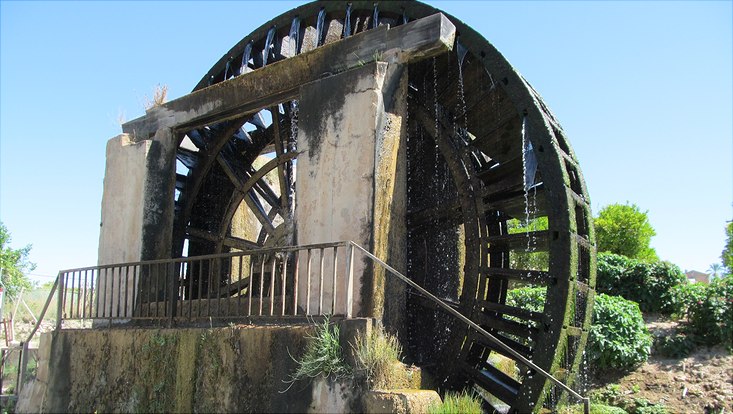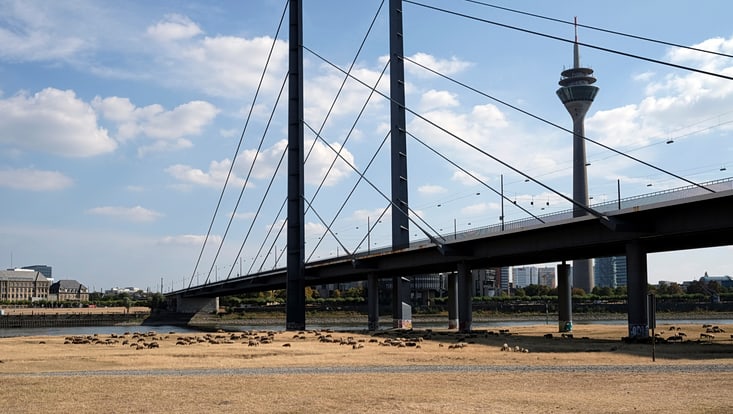Water Wheels or Diesel Pumps?
25 October 2021, by Stephanie Janssen

Photo: UHH/CEN/K.Heider
In the Mediterranean, on the coastal slopes and in the mountainous hinterland alike, farming traditionally takes place on so-called terraced fields. This requires water to be transported to the various levels of the fields. Today, this is mainly done by motor-driven pumps, which produce CO2 emissions. At the same time, numerous traditional water wheels, known as norias, lay idle. The latter could pump water without producing any direct emissions.
A team led by Katharina Heider from Universität Hamburg’s CEN has investigated the current state of these water wheels in the Ricote Valley of Southeast Spain, as well as the potential benefits of putting them into operation again, and the reasons for their decline. To do so, they’ve combined data on the water wheels with surveys conducted among experts, and calculated the wheels’ performance and emissions compared to motor-driven pumps.
Their findings: In the Ricote Valley, too, the norias have been replaced by motor-driven pumps. Restoring the traditional water wheels could help reduce the energy consumption of irrigation systems in the Mediterranean, and the resulting emissions. Specifically, the team examined 16 norias with a combined capacity of ca. 23.8 kW, enough to irrigate roughly 140.3 hectares of land in the Ricote Valley. In comparison to irrigating the area using diesel pumps, water wheels could reduce emissions by up to 148 metric tons and save up to 70,000 euros on diesel costs per year. Compared to electric pumps, the researchers calculated emissions savings of up to 55 metric tons and cost savings of roughly 48,000 euros per year. As such, traditional technologies definitely have the potential to help protect the climate and reduce greenhouse gas emissions.
More about the topic
Research paper:
Heider K, Quaranta E, García Avilés JM, Rodriguez Lopez JM, Balbo AL, Scheffran J (2021): Reinventing the wheel – The preservation and potential of traditional water wheels in the terraced irrigated landscapes of the Ricote Valley, southeast Spain; Agricultural Water Management
CEN News: Small-scale Terraced Agriculture Protects the Climate and Environment


